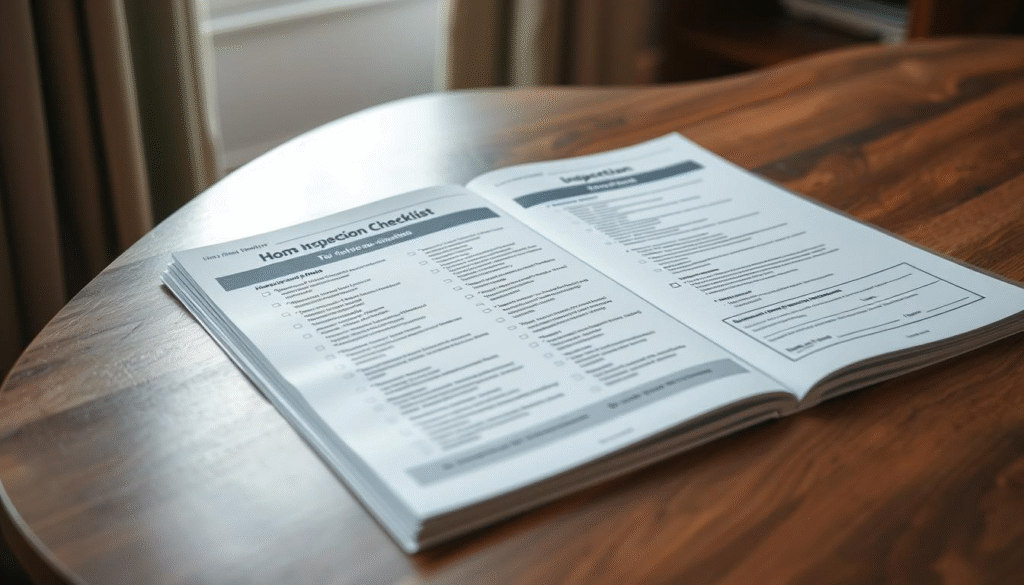Nearly 75% of homebuyers feel overwhelmed during the home buying process, according to the National Association of Realtors. This statistic highlights the complexity of real estate purchase transactions. It shows the need for a detailed guide.

Understanding the steps involved in buying a house is key for a smooth transaction. From figuring out how much home you can afford to closing the deal, the process has several critical stages.
Key Takeaways
- Understand the importance of pre-approval for a mortgage loan
- Learn how to determine your budget for a home purchase
- Discover the key steps involved in the home buying process
- Find out what to expect during the closing process
- Get an overview of the home inspection and appraisal process
The Current Real Estate Market Analysis
Understanding the current real estate market is vital for those looking to buy. The market is shaped by economic conditions, interest rates, and regional trends. These factors play a significant role in the market’s dynamics.
Market Trends in the United States
The U.S. real estate market is undergoing changes due to economic shifts and consumer behavior. House hunting tips are essential for navigating these trends successfully.
Price Ranges and Affordability Index
Prices vary greatly across regions, influencing real estate purchase choices. The affordability index is a critical factor for buyers to consider.
Buyer vs. Seller Market Dynamics
The balance between buyer and seller markets is always changing. Grasping these dynamics is essential for successful property ownership.
Regional Market Variations
Regional differences in the real estate market impact housing prices and availability. Buyers need to research these variations to make informed decisions.
By staying updated on the real estate market, buyers can make better choices during their real estate purchase journey.
Financial Preparation for Buying a House
Before starting the home buying journey, it’s vital to check your financial status. This involves several key steps. They ensure a smooth transaction and successful mortgage approval.
Assessing Your Financial Readiness
For first-time homebuyers and experienced buyers, evaluating your financial status is essential. It starts with understanding your income stability and savings.
Income Stability Requirements
Lenders seek a stable income source. This means having a steady job or a reliable income stream. It must support your mortgage payments.
Savings Benchmarks
Sufficient savings are critical for down payments, closing costs, and other buying expenses. Aim to save at least 20% of the purchase price.
Down Payment Strategies
There are various down payment strategies available, including assistance for first-time homebuyers. Understanding these options helps you make an informed decision.
Credit Score Optimization
Your credit score significantly impacts your mortgage interest rate and approval. To optimize it, pay bills on time, reduce debt, and monitor your credit report.
Debt-to-Income Ratio Management
Managing your debt-to-income ratio is key to showing lenders you can afford mortgage payments. This involves calculating your total debt payments against your income.
By focusing on these areas, you can enhance your financial readiness. This increases your chances of a successful home buying experience.
Mortgage Options Review
The path to owning a home starts with exploring different mortgage options. Buyers can select from a range of loan types, each with its own set of features.
Conventional Loans Analysis
Conventional loans are not backed by the government. They come from private lenders and can be conforming or non-conforming. This depends on the loan amount and the borrower’s credit score.
Pros and Cons
Conventional loans offer flexible terms and lower mortgage insurance rates for those with high credit scores. Yet, they often require a significant down payment and have strict credit score requirements.
Qualification Requirements
To qualify for a conventional loan, a credit score of 620 or higher is needed. The debt-to-income ratio must be under 43%. The down payment is usually around 20%.
Government-Backed Loans Comparison
Government-backed loans have more relaxed qualification standards. They are insured by government agencies.
FHA Loan Benefits and Limitations
FHA loans are favored by first-time buyers for their low down payment requirements and lenient credit score criteria. They do, though, require mortgage insurance premiums.
VA Loan Eligibility and Advantages
VA loans are for eligible veterans. They offer favorable terms, including no down payment requirements and lower interest rates. The Department of Veterans Affairs guarantees them.
USDA Loan Rural Requirements
USDA loans are for buyers in rural areas. They provide zero down payment options and competitive interest rates. Eligibility hinges on the property’s location and the borrower’s income.
| Loan Type | Down Payment | Credit Score | Insurance/Guarantee |
| Conventional | 20% | 620+ | Private Mortgage Insurance |
| FHA | 3.5% | 580+ | Mortgage Insurance Premiums |
| VA | 0% | 620+ | VA Guarantee |
| USDA | 0% | 640+ | USDA Guarantee |
Pre-Approval Process Walkthrough
Getting pre-approved for a mortgage is wise before house hunting. It involves submitting financial documents to a lender. They then issue a pre-approval letter stating the approved loan amount.
Understanding the pre-approval process and the various mortgage options can greatly ease the home buying journey.
Real Estate Professional Selection Guide
The journey of buying a home can be much easier with the right real estate professionals. It’s vital to choose the right experts to navigate the complex home buying process.
Real Estate Agent Evaluation Criteria
When picking a real estate agent, several key factors come into play. These include:
- Experience: Seek agents with a solid track record in your desired area.
- Specialization: Some agents focus on specific property types or client needs.
Experience and Specialization
An agent’s experience and specialization significantly influence their ability to guide you. For example, an agent who specializes in first-time homebuyers can offer invaluable insights and support.
Communication Style Assessment
Assessing an agent’s communication style is critical to ensure it meets your needs. Consider their responsiveness and ability to clearly explain the process.
Mortgage Broker vs. Direct Lender Comparison
When financing your home purchase, you can choose between a mortgage broker or a direct lender. Mortgage brokers offer a variety of loan options from different lenders. On the other hand, direct lenders provide loans from their own funds.
When to Hire a Real Estate Attorney
In some states, hiring a real estate attorney is common to review contracts and protect your rights. Consider an attorney if your transaction is complex or if you’re unsure about legal aspects.
The Essential Steps to Buying a House
Embarking on the journey to homeownership requires a clear understanding of several key steps. From defining your needs to closing the deal, each phase is critical. Grasping these steps can simplify the home buying process, making it less overwhelming and more achievable.
Defining Your Non-Negotiable Requirements
Identifying your non-negotiable requirements is the first step in your house hunt. These are the aspects of a home you cannot compromise on. Consider various factors such as:
- Location: Proximity to work, schools, and essential amenities.
- Size and Layout: The number of bedrooms and bathrooms, as well as the overall square footage.
- Amenities: Features like a pool, garden, or specific architectural elements.
Neighborhood Research Methodology
Researching the neighborhood is as vital as finding the right house. Key aspects to explore include:
School District Evaluation
Even if you don’t have children, the quality of local schools can impact resale value. It’s wise to research school ratings and reviews.
Crime Rate Assessment
Understanding the local crime rate offers insights into the neighborhood’s safety. Utilize online resources to access crime statistics.
Amenity Proximity Analysis
Consider how close you are to amenities like grocery stores, parks, and public transportation. This significantly influences your quality of life.
Property Viewing Strategies
When viewing properties, it’s essential to remain open-minded while focusing on your priorities. Here are some strategies:
- Make a List: Record the features you like and dislike about each property.
- Take Photos and Videos: To aid in remembering details of each home.
- Consider Future Needs: Reflect on how your needs might evolve in the future.
Offer Submission and Negotiation Tactics
Once you’ve identified the perfect property, it’s time to submit an offer. This involves several key steps:
- Initial Offer: Based on market analysis and the property’s condition.
- Negotiation: Be ready to negotiate on price, repairs, or other terms.
- Contingencies: Include contingencies for financing, inspection, and appraisal.
By adhering to these essential steps, you can confidently navigate the home buying process. This ensures you find a home that meets your needs and budget.
Home Inspection and Appraisal Review
Understanding the importance of home inspections and appraisals is key to a successful real estate purchase. These critical steps help buyers identify any issues with the property. They also ensure the purchase price is reasonable.
Comprehensive Home Inspection Checklist
A thorough home inspection is essential for uncovering any hidden defects or needed repairs in the property. This process involves examining various aspects of the home.
Structural Elements Assessment
The inspection begins with an assessment of the property’s structural elements, including the foundation, walls, and roof. Any signs of damage or wear are noted.
Systems and Appliances Evaluation
In addition to structural elements, the inspection includes an evaluation of the home’s systems and appliances. This includes plumbing, electrical systems, and HVAC.
Deal-Breaking vs. Negotiable Issues
Not all issues uncovered during the inspection are deal-breakers. Some may be negotiable, depending on their severity and the seller’s willingness to address them.

Appraisal Process Explained
An appraisal is an independent assessment of the property’s value, typically required by lenders. It ensures the sale price is reasonable. The appraiser considers various factors, including the property’s condition, location, and comparable sales.
Post-Inspection Negotiation Strategies
After receiving the inspection report, buyers can use the findings to negotiate with the seller. This might involve requesting repairs or a reduction in the sale price.
Closing Process Breakdown
Closing on a property marks the end of the home buying journey, demanding meticulous attention. This final phase encompasses several vital elements. These must be navigated to successfully transfer the property’s ownership.
Closing Costs Itemization
Understanding and managing closing costs is a critical aspect of the closing process. These costs can be categorized into several areas.
Lender Fees Analysis
Lender fees are a major component of closing costs. They include charges for loan processing, such as origination and underwriting fees.
Third-Party Service Charges
Buyers also face costs for third-party services. These include title insurance, escrow services, and appraisal fees.
| Service | Cost Range | Description |
| Title Insurance | $1,500 – $3,000 | Insurance protecting against title disputes |
| Escrow Services | $500 – $2,000 | Handling the transfer of funds and documents |
| Appraisal Fee | $300 – $1,000 | Determining the value of the property |
Required Documentation Checklist
Buyers must prepare and submit various documents during the closing process. These include identification, loan documents, and insurance policies.
Final Walk-Through Protocol
A final walk-through is conducted to ensure the property is in the agreed-upon condition. This step is essential for identifying any last-minute issues.
Closing Day Expectations
On closing day, buyers sign the final documents, transfer the funds, and officially become the property owners. It’s vital to review all documents carefully before signing.
First-Time Homebuyer Assistance Programs
Many programs exist to help first-time homebuyers achieve their dream. These offer financial aid, educational tools, and better loan terms.
Federal Program Eligibility Requirements
To get federal help, first-time buyers must meet certain criteria. This includes income limits, minimum credit scores, and completing a homebuyer course. For example, FHA loans are favored for their lenient credit standards and low down payments.
State-Specific Incentive Comparison
States also have their own benefits for first-time buyers. These include down payment help, tax breaks, and grants. Some states offer down payment assistance programs that can cover a lot of the down payment costs.

Down Payment Assistance Options
Down payment aid is key in many first-time buyer programs. There are grants that don’t need to be repaid and loans with good interest rates. These can greatly lower the upfront costs of buying a home.
Tax Benefits and Deductions
First-time buyers can also enjoy tax perks and deductions. For example, the Mortgage Interest Deduction lets homeowners deduct mortgage interest from their taxable income. This can lead to big tax savings.
Who These Programs Best Serve
These programs are made for those new to buying homes. They’re great for those with less money, as they offer more affordable mortgages and down payment aid.
Common Pitfalls When Buying a House
The path to owning a home is filled with pitfalls, from emotional decisions to timing mistakes. Knowing these risks can make the home buying journey smoother.
Emotional Decision-Making Risks
Buying a house is an emotional journey. Letting emotions dictate your choices can lead to expensive errors. It’s vital to stay objective and think about the property’s resale value and growth.
Tip: Make a list of your must-haves and stick to it to avoid hasty decisions.
Hidden Cost Oversights
Many overlook costs beyond the purchase price, like closing fees, inspections, and appraisals. These expenses can quickly accumulate.
- Closing costs: 2-5% of the purchase price
- Inspections: $300-$1,000
- Appraisals: $300-$500
Contingency Clause Mistakes
Contingency clauses are key in real estate contracts, allowing buyers to exit if conditions aren’t met. But, not including or wording these clauses correctly can cause issues.
Example: A financing contingency clause can safeguard the buyer if they can’t get a loan.
Timing Errors in the Purchase Process
In real estate, timing is critical. Rushing or delaying can lead to missed chances or costly blunders.
| Timing Issue | Potential Consequence |
| Delaying the home search | Missing out on desirable properties |
| Rushing the inspection process | Overlooking critical property issues |
Post-Purchase Regret Prevention
To prevent regret after buying a home, carefully consider your needs and budget. Researching the neighborhood and understanding local market trends is also essential.
By recognizing these common pitfalls, homebuyers can approach the complex process with confidence and make better decisions.
Conclusion: Making the Right Homeownership Decision
Buying a house is a major life choice that needs careful planning and a deep understanding of the home buying process. This article has highlighted key aspects of successful property ownership.
To make a well-informed choice, evaluating your financial situation is essential. It’s also important to explore the various mortgage options and choose the right real estate professionals. They will guide you through the complex process.

The journey to homeownership involves several critical steps. These include setting clear requirements, researching neighborhoods, and navigating the offer and negotiation phases. Understanding the role of home inspections and the closing process is also vital. It helps you steer clear of common pitfalls.
“The key to successful homeownership is not just about finding the right house, but also about understanding the process and being prepared for the responsibilities that come with it.”
Real Estate Expert
| Key Factors | Description | Importance Level |
| Financial Readiness | Assessing your financial health and credit score | High |
| Mortgage Options | Understanding conventional and government-backed loans | High |
| Home Inspection | Conducting a thorough inspection to spot any issues | High |
In conclusion, buying a house is a complex endeavor that demands a thorough examination of various factors. By staying informed and well-prepared, you can make a homeownership decision that aligns with your needs.
Sources
The data in this article comes from trusted sources. These include financial institutions and government websites.
To learn more and confirm the information, check out these resources:
- Federal Reserve
- Zillow
- Redfin
- U.S. Department of Housing and Urban Development
FAQ
What are the key steps involved in the home buying process?
The home buying process is complex, involving several key steps. First, you must define your non-negotiable requirements. Next, research neighborhoods and view properties. Then, submit offers and secure mortgage approval.After that, conduct home inspections and appraisals. Lastly, close on the property. Each step is critical to a successful home purchase.
How can I assess my financial readiness to buy a house?
To assess your financial readiness, start by evaluating your income stability and savings. Consider your down payment strategies and credit score. Also, look at your debt-to-income ratio.Improving your financial readiness is possible. Optimize your credit score and manage your debt. Building up your savings is also key.
What are the different types of mortgage options available to homebuyers?
Homebuyers have various mortgage options. Conventional loans are offered by private lenders. Government-backed loans, insured by agencies like the FHA or VA, are another choice.There are also specialized mortgage products. Each option has its own benefits and requirements. It’s important to understand these differences when choosing a mortgage.
How do I select the right real estate professionals for my home buying needs?
Choosing the right real estate professionals is essential. Evaluate agents based on their experience, reputation, and communication skills. Compare mortgage brokers and direct lenders to find the best deal.Consider hiring a real estate attorney if needed. This ensures you have the necessary legal support throughout the process.
What is the importance of home inspections and appraisals in the home buying process?
Home inspections and appraisals are critical steps. A home inspection identifies any issues with the property. An appraisal ensures the property’s value matches the sale price.These steps help avoid costly surprises and allow for better negotiation. They are essential for a successful home purchase.
What are the common pitfalls that homebuyers may encounter, and how can I avoid them?
Homebuyers often face emotional decision-making and hidden cost oversights. Mistakes with contingency clauses and timing errors are also common. To avoid these pitfalls, stay informed and work with experienced professionals.Review all documents carefully before signing. This ensures you understand the terms and avoid costly mistakes.
What assistance programs are available to first-time homebuyers?
First-time homebuyers can access various assistance programs. These include federal and state-specific incentives, down payment assistance, and tax benefits. These programs make homeownership more affordable and accessible.
What are the typical closing costs associated with buying a house?
Closing costs include fees for title insurance, escrow services, loan origination, and appraisal. These costs vary based on location, property type, and other factors.
How can I ensure a smooth closing process?
To ensure a smooth closing, review all documents carefully and complete required paperwork. Conduct a final walk-through of the property before closing. Work closely with your lender, real estate agent, and attorney to ensure everyone is on the same page.
